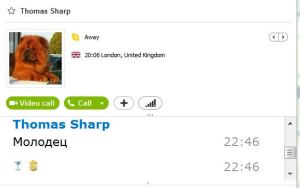Why have I written this article?
I don`t know how to translate these words properly.
My students come and we discuss their day and it works as a warm-up exercise. They tell me:
ПОСЛЕ КАЖДОГО ПАРАГРАФА – ПЕРЕВОД
Зачем я написал эту статью? Я не знаю, как правильно перевести эти слова. Когда приходят студенты, мы в качестве разминочного упражнения обсуждаем их день. Они говорят:
I woke up early and drank my (кефир):

They manufacture this kefir in the UK
The day was hot so I was drinking (квас):

Kvass fermenting
I had my dinner. I ate a plate of (окрошка):

with cucumbers, sausage, boiled eggs, kvass and dill.
and a slice of (колбаса):

Палка колбасы как будет?
and one (сосиска):

Сосиска in Russian
and then one (пирожок):

Пирожок. Nine pirozhoks.
also, for the dessert, my wife brought some вареники:

Stuffed dumplings
It`s cold here, can I close my (форточка)?

Can you believe there are no photos of cats on my site?
Я рано проснулся и выпил кефира. Была жара, поэтому я пил квас. Я пообедал, съел ломтик колбасы и одну сосиску, а затем пирожок.
This slideshow requires JavaScript.
And if you think that my students just tell me stories, then I have to dissappoint you! I have to work! One of my pleasant obligations is to translate all those unknown words into the English language. But, what if even British themselves haven`t ever seen all those things we have here? Of course, I find the equivalents but then it is my turn to tell my stories to my British friends. I also come to my own teacher who also adores warm-ups and I tell her my stories. You know, she gets surprised when I tell her about kvass, kefir, пирожки, качалка колбасы and форточка. The British seem to not have these words!
И, если вы думаете, что мои студенты просто рассказывают истории, то вынужден вас разочаровать! Я должен работать! Одноа из моих приятных обязанностей – это перевод всех этих неизвестных слов на английский. Но, что если даже если британцы сами никогда в совей жизни не видели все те вещи, которые у нас тут есть? Естественно, я нахожу соответствия, но вот наступает мой черёд рассказывать истории своим британским товарищам. А ещё прихожу к своей учительнице, так же обожающей разминку, и выкладываю свои истории. Знаете, она удивляется, когда я говорю про квас, кефир, пирожки, качалку/палку колбасы и форточку. Кажется, у британцев таких слов нет!
Kvass is a slavonic drink.
Kefir is what they have not even seen!
Their колбаса is different in colour and the filling is different.
They dont bake пирожки!</span>
<span style="color:#104d43;"> As to форточки I dont even have a clue on how they air their rooms.
I`ll leave this article here for cross-cultural exchange. If you have your own words, please, add them in comments below.
Квас – славянский напиток. Кефира они никогда и не видали! Их колбаса другая на цвет и по начинке. Они не пекут пирожки! А насчёт форточек – я даже не знаю, как они проветривают комнаты.
Оставлю здесь эту статью для межкультурного обмена. Если у вас есть свои слова, добавляйте в коментариях ниже.
P.S. My British friends gave some of their equivalents.
1) Dimitri Romanov:
«Kefir. We call it yakult
Soseeska is a hotdog
Colbasa looks like salami
Peerozhock is a veggie roll
Fotorchka is called upper sash.
Kvass we call kvass. It`s a fermented alcoholic beverage generally made from rye bread. Normally we don’t use this. We have something called cider which is made from apples in this way instead.
There you go :)”
2) Thomas Sharp:
«кефир – yoghurt drink
квас – none
колбаса – cured sausage
сосиска – frankfurter
пирожок – pasty
форточка – top window, little window”.
котлета – rissoles. I think that is the closest translation. Meat one.
3) Joe Koberton:
котлета I think that is meatball. Rissoles? Hmm i have not heard that before sorry sergey.
Continue reading →























